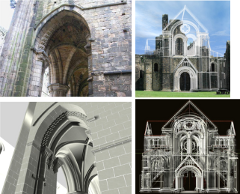

We are currently witnessing a significant shift away from traditional forms of mass communication and editorial push towards user-generated content and individualised communication contexts. These structural changes to mass communication also affect the agency of the user and their relationship with traditional and new media. Indeed, we propose that users are now actively engaged in shaping their own forms of individualised generation of contexts for learning.
New relationships between context and production are emerging in that mobile devices not only enable the production of content but also of contexts. They position the user in new relationships with space, the physical world, and place, social space. Mobile devices enable and foster the broadening and breaking up of genres. Citizens become content producers, who are part of an explosion of activity in the area of user-generated content.
But, sceptics might ask, is there a direct relationship between user-generated content and learning? Undoubtedly the link is currently still more obvious in certain disciplines, such as music, media studies etc, than others. Yet, if not planned for, failing to explore how educational institutions can cope with the more informal communicative approaches to digital interactions that new generations of learners possess, we argue, could lead to a schism between learning inside and outside of formal educational settings. We see the notion of 'learner-generated' as a paradigm shift where learning is viewed in categories of context and not content and as a potential. Learning as a process of meaning-making occurs through acts of communication, which take place within rapidly changing socio-cultural, mass communication and technological structures that we have briefly outlined above.
User-generated context for us is conceived in a way that users of mobile digital devices are being ‘afforded’ synergies of knowledge distributed across: people, communities, locations, time (life-course), social contexts and sites of practice (like socio-cultural milieus) and structures. Of particular significance for us is the way in which mobile digital devices are mediating access to external representations of knowledge in a manner that provides access to cultural resources. This dynamic digital tool mediation of meaning-making allows users to negotiate and construct internal conceptualisations of knowledge and to make social uses of knowledge in and across specific sites or contexts of learning.